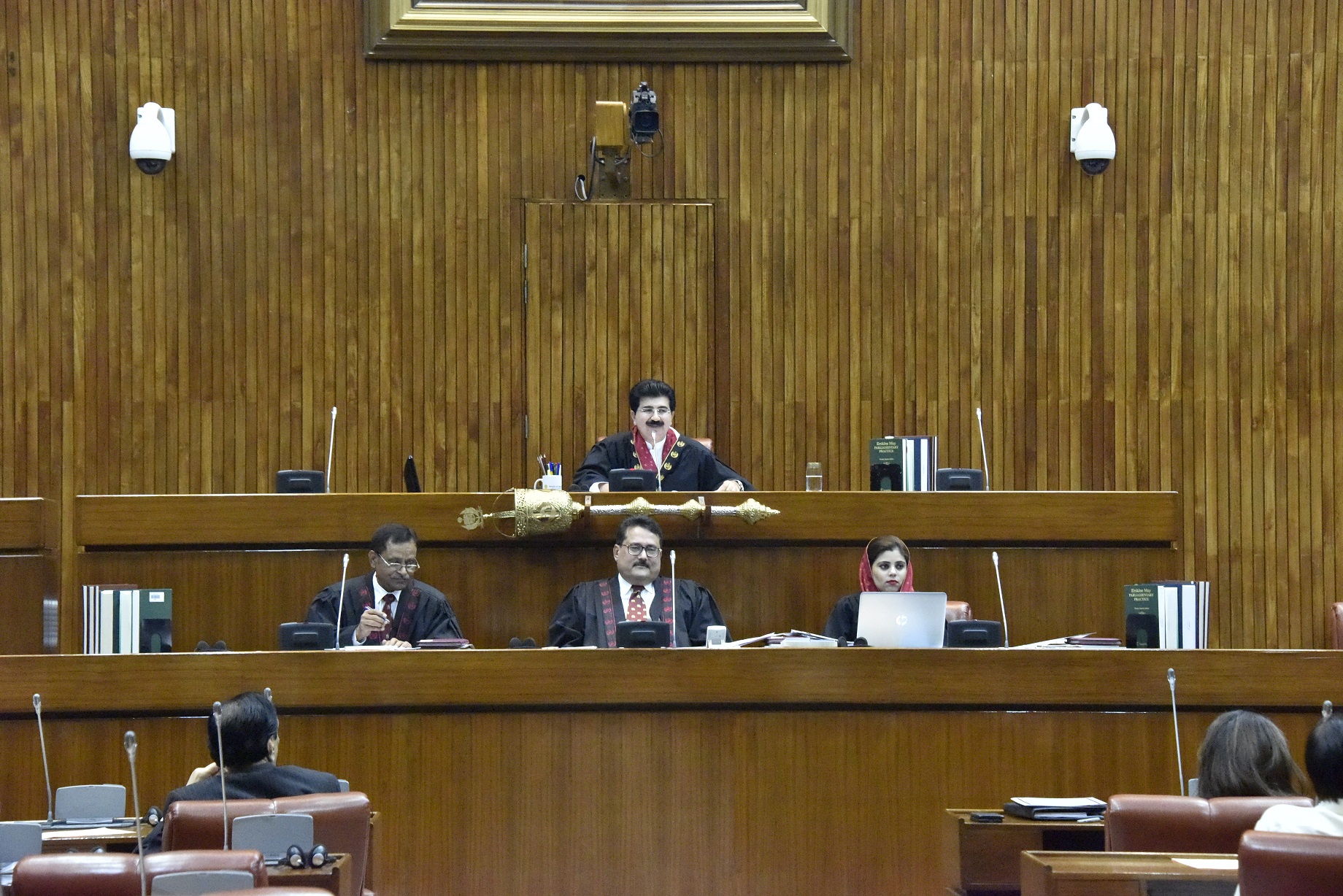LAHORE MIRROR — In a significant move to safeguard national security and interests, the Pakistan Army Act (Amendment) bill-2023 has been passed by the Senate on Thursday which proposes up to five years imprisonment for anyone who discloses sensitive information pertaining to the security of the country or the Pakistan Army.
The amendment bill, titled “Pakistan Army (Amendment) Act, 2023”, was moved by Defence Minister Khawaja Asif. The bill proposes adding Section 26-A (unauthorised disclosure) to the act, under which “anyone who discloses or causes to be disclosed any information, acquired in official capacity, which is or may be prejudicial to the security and interest of Pakistan or the armed forces of Pakistan, shall be […] punished with rigorous imprisonment for a term which may extend to five years”.
However, if someone does so “after seeking prior approval from the chief of army staff (COAS), or any officer duly empowered by him, in the manner prescribed” then it shall not be deemed as an “unauthorised disclosure”.
It also states that such a case will be dealt with according to Section 59 (civil offences) of the Army Act read with the Official Secrets Act 1923.
The bill also proposes introducing Section 26-B, which forbids any person subject to the Army Act from engaging in any kind of political activity for two years from the date of their “retirement, release, resignation, discharge, removal or dismissal from the service”.
It further says that those who have “remained posted, employed, seconded, tasked or otherwise attached on sensitive duties” are forbidden from taking part in “political activity of any kind, during a period of five years from the date of his retirement, release, resignation, discharge, removal or dismissal from the service”.
It states that anyone who violates the aforementioned conditions, upon their conviction by the court constituted under the Army Act, will be punished with “rigorous imprisonment for a term which may extend to two years”.
The bill also proposes introducing Sections 55-A (conflict of interest), 55-B (electronic crimes) and 55-C (defamation).
Section 55-A forbids any persons subject to the Army Act in the past five years from “directly or indirectly enter[ing] into employment, consultation or other engagement with an entity having conflict of interest” with the activities of the Pakistan Army or its affiliates.
However, the law does not apply to those who seek prior approval from the COAS for the above. A person guilty of the said offence can be imprisoned for up to “two years with fine not exceeding Rs500,000 or with both”, the bill states.
Section 55-B states that any person, who is or has been subjected to the Army Act, and commits an offence under the Prevention of Electronic Crimes Act (Peca), 2016 “with the malafide intention to undermine, ridicule, or scandalize the armed forces of Pakistan,” shall be punished in the manner prescribed in the Peca law.
Section 55-C stated that a person subject to the Army Act, who “ridicules, scandalises, brings into hatred or otherwise attempts to lower the armed forces of Pakistan or any part thereof in the estimation of others shall […] be punished with imprisonment which may extend to two years or fine or with both.”
The bill also proposes introducing of Section 176-AA (power to issue instructions) which states that the COAS may “from time to time, make and issue instructions for carrying into effect the provisions of this Act and the rules and regulations made thereunder, provided that all such instructions already made and issued shall always be deemed to have been validly made and issued under this act”.
A clause introduced to Section 176-C proposes that the COAS “may delegate any of his powers and functions conferred by, or delegated under this act, to any officer or authority subordinate to him”.
Meanwhile, the addition of Section 176-E (overriding effect) proposes that the laws under the act “shall have effect notwithstanding anything inconsistent contained in any other law, rules or regulations for the time being in force”, adding that any such inconsistent law shall, “to the extent of any inconsistency, cease to have effect”.
SOURCE: DAWN.COM/NEWS AGENCIES

